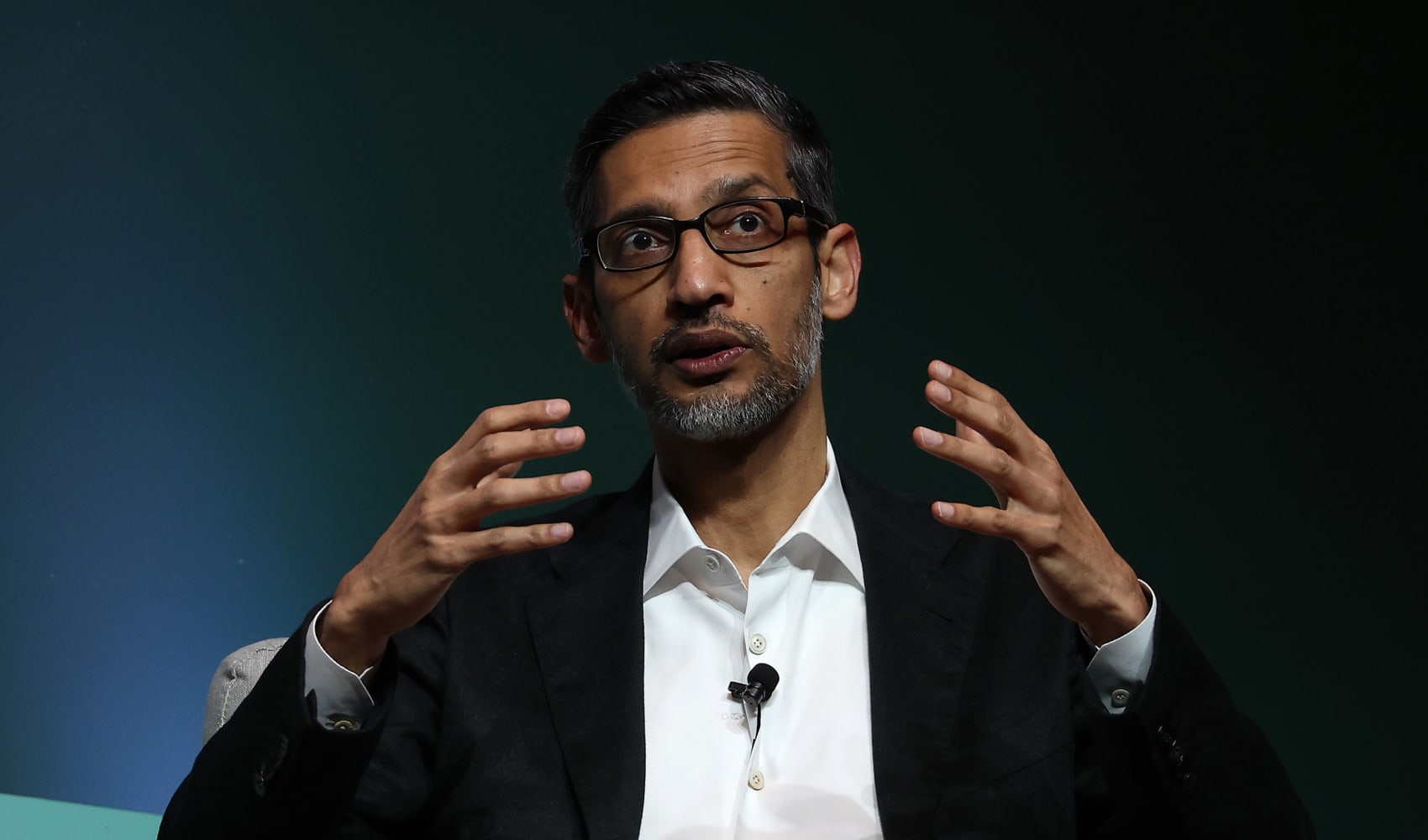- The Telecommunications Business Act, or the so-called Anti-Google Law, was submitted to parliament last August, according to Yonhap News.
South Korea has become the first country to impose curbs on Google and Apple's policies that force developers to only use the tech giants' proprietary billing systems.
Those policies require developers to pay Google and Apple a commission as high as 30% in every transaction.
Media reports last week said the legislation and judiciary committee of the National Assembly approved revisions of a bill aimed at stopping app store operators from forcing developers to use specific payment systems.
The Telecommunications Business Act, or the so-called Anti-Google Law, was submitted to parliament last August, according to Yonhap News.
South Korea's parliament approved the bill on Tuesday, with 180 out of 188 voting in favor of the changes to the Telecommunications Business Act, according to Reuters.
Apple and Google did not immediately respond to a CNBC request for comment.
Money Report
Regulators worldwide are focusing more on the app stores and fees that Google and Apple are charging developers — and the ruling in South Korea will likely be the first step toward greater scrutiny, according to Daniel Ives, managing director of equity research at Wedbush Securities.
"It's a potential watershed moment," Ives said on CNBC' "Street Signs Asia" on Monday ahead of the decision in Seoul. "Not necessarily for what this means in itself, but for the ripple effect as it shows they're not just words, but actually actions."
Ives added that while there might be monetization opportunity for others, such as telecommunication services providers, it ultimately depends on how consumers would respond.
"The question is what will consumers ultimately do? Because the path of least resistance is to go through Apple and go through Google – and that's what consumers have gotten used to," he said.
What happened?
Last year, Google said it was planning to enforce a policy requiring developers that distributed software on the Google Play Store — a digital service to download apps — to use its proprietary in-app payment system. That means other payment alternatives will not be allowed.
Google's billing system takes a 30% cut for most in-app purchases, similar to what Apple does on its App Store.
The move was criticized by developers and regulators scrutinized Google's and Apple's hold over the smartphone operating systems and the price they charge programmers who develop apps for those platforms. Majority of the world's smartphones either run on Google's Android operating system or on Apple's iOS platform.
Both companies have since said they would cut their commission rates for certain developers.
In Apple's case, the company said it will halve charges from 30% to 15% for software developers with less than $1 million in annual net sales on the App Store. Google said in March it would cut Google Play Store fees from 30% to 15% for the first million dollars a developer makes on the platform per year.
The iPhone maker last week also reversed course on another important App Store policy: It said developers on the App Store will be allowed to email users and encourage them to pay directly, instead of through Apple — a move that was previously prohibited.
However, if users continue to make payments through the App Store, developers will have to use Apple's billing system and pay a commission.
This is a breaking news. Please check back for updates.
— CNBC's Kif Leswing contributed to this report.






